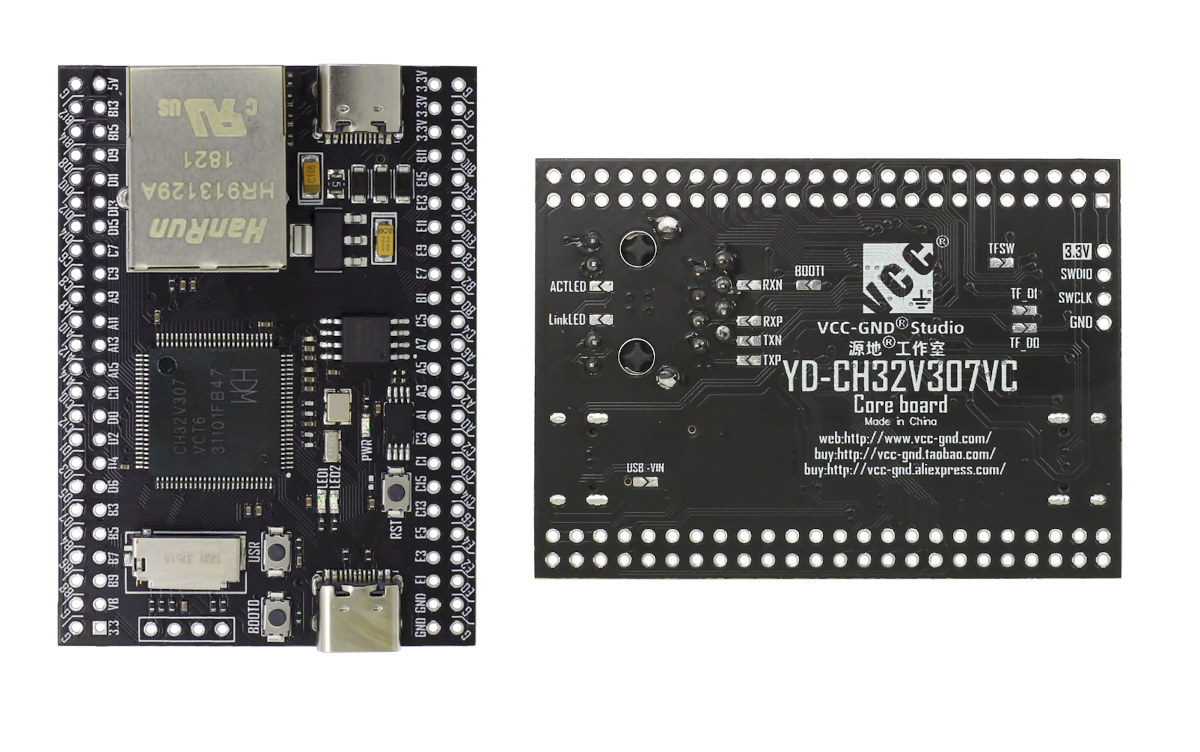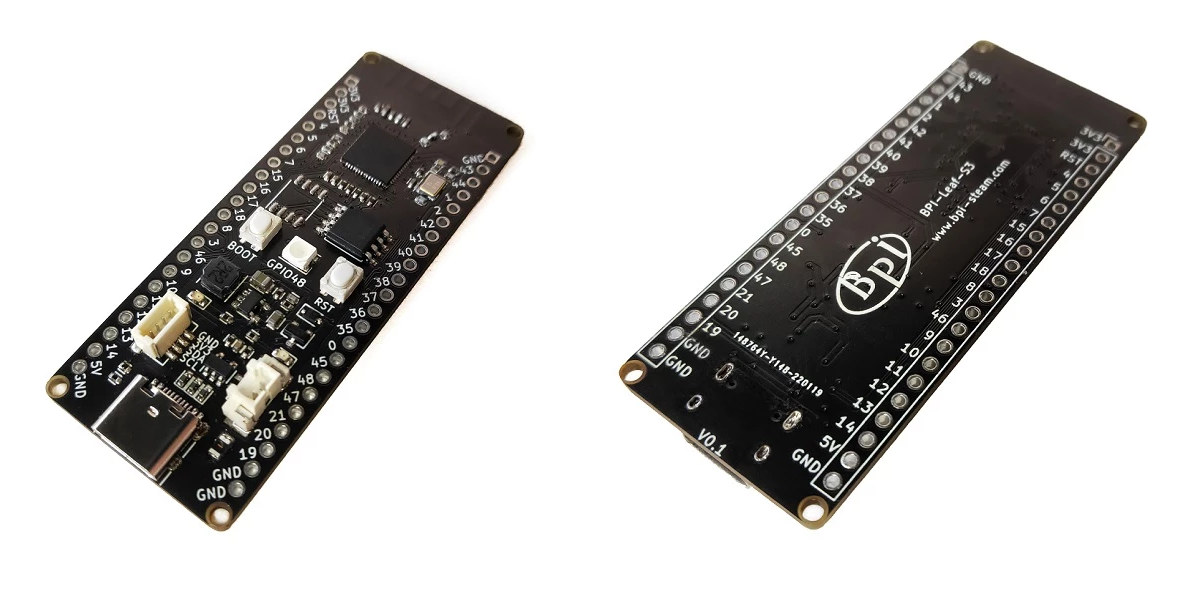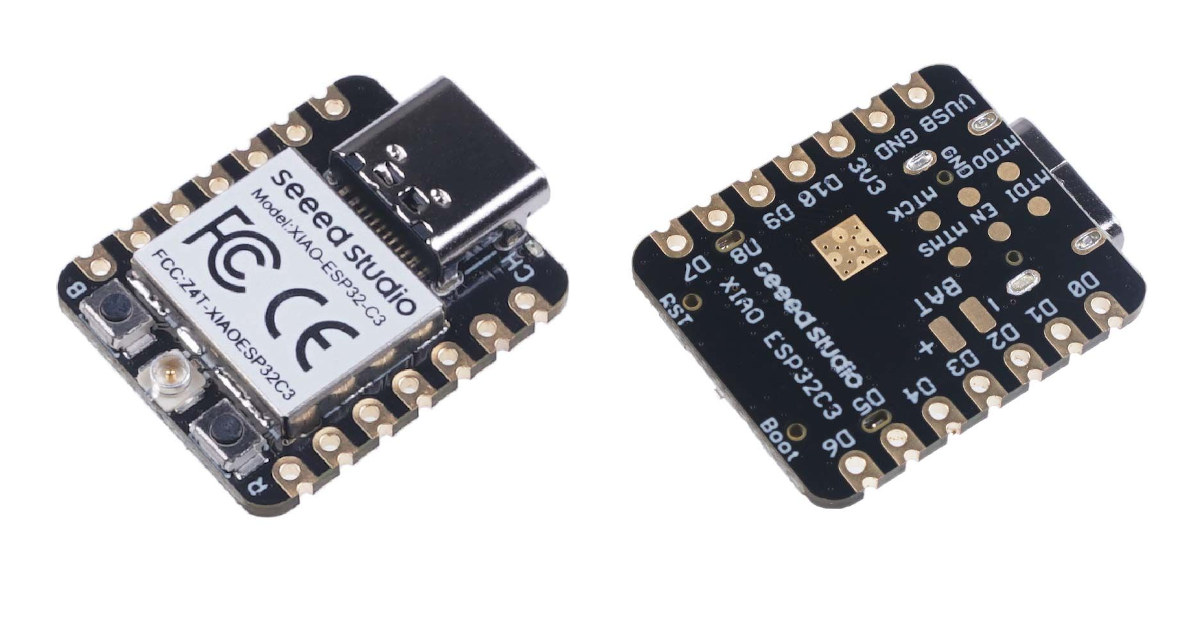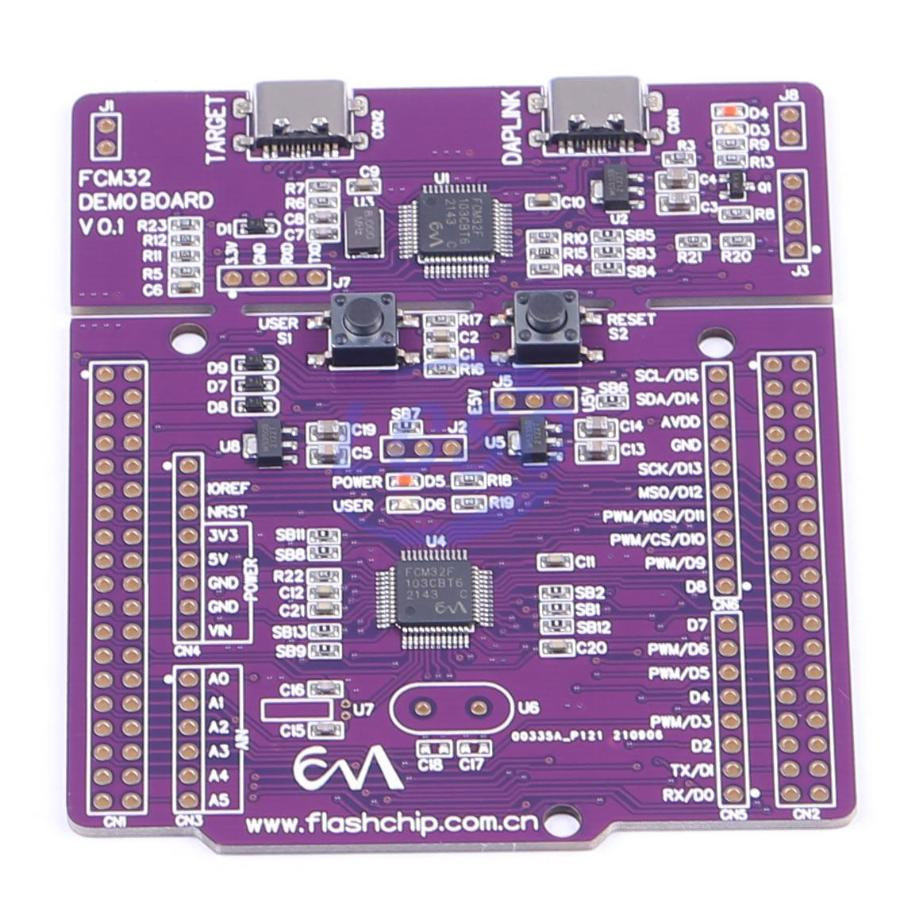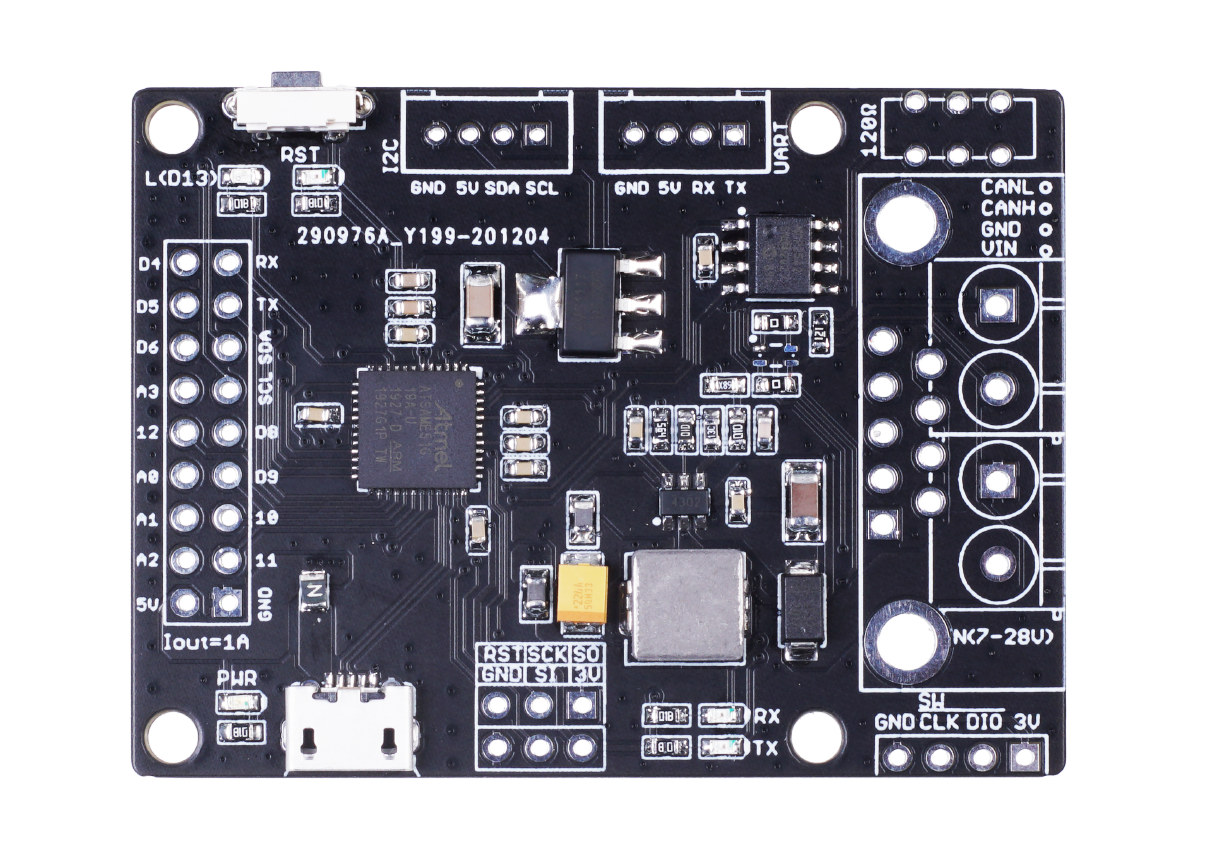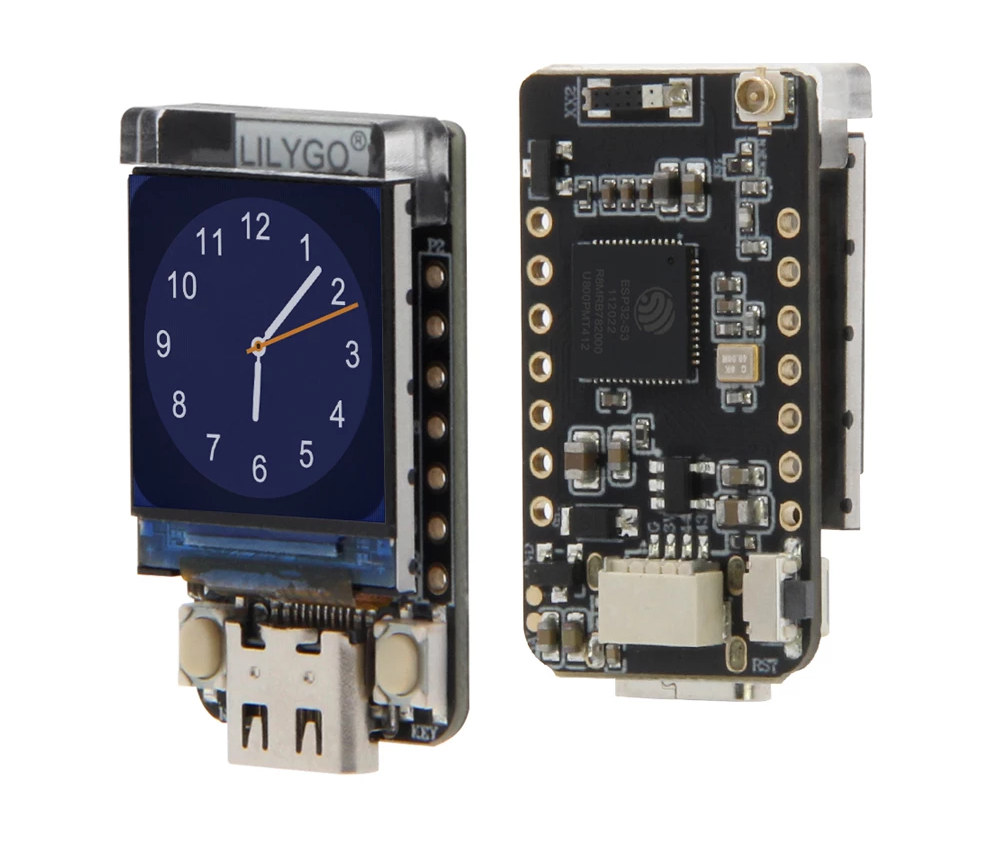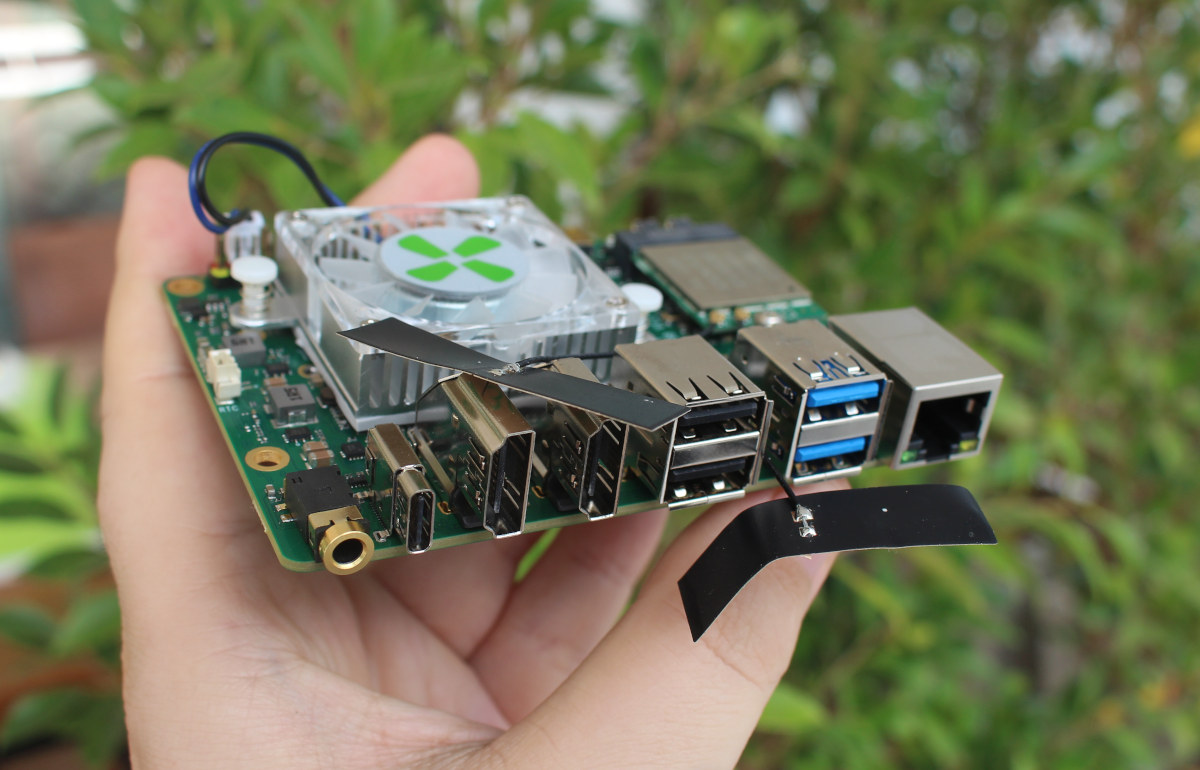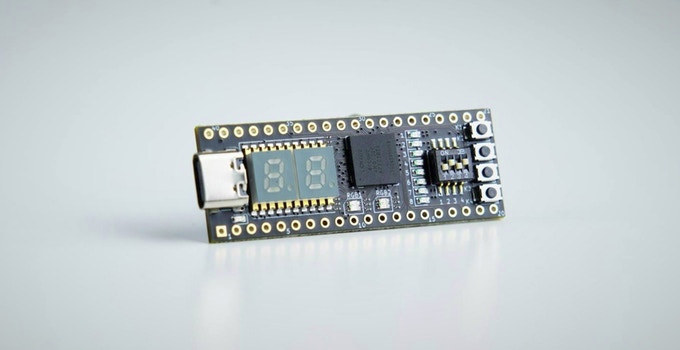At the beginning of the year, we wrote about WCH CH32V307 RISC-V microcontroller and a development board with 8 UART ports controlled over Ethernet. I’ve now been informed of a similar, but much more compact by VCC-GND Studio named “YD-CH32V307VCT6”. Besides the 144 MHz RISC-V microcontroller, the board features a 10Mbps Ethernet port, two USB Type-C ports, SPI flash, EEPROM, a microSD card socket, and four rows of 24 pins each for a total of 96 pins exposing all pins out of the LQFP100 package. YD-CH32V307VCT6 board specifications: MCU – WCH CH32V307VCT6 32-bit RISC-V microcontroller @ 144 MHz with 256K Flash, 64K SRAM Storage – 32Mbit SPI NOR flash (W25Q32), 64kbit EEPROM (24C64), MicroSD card slot Networking – 10 Mbps Ethernet USB – 1x USB 2.0 Type-C port (High Speed: 480 Mbps), 1x USB 2.0 Type-C port (Full Speed: 12 Mbps) Expansion – 2x 48-pin headers with 2 x 12-bit […]
Banana Pi BPI-Leaf-S3 ESP32-S3 board launched for $7.5
Banana Pi is better known for its Arm Linux boards, but the company’s Banana Pi BPI-Leaf-S3 board features Espressif ESP32-S3 dual-core WiFi & BLE AI processor, with compatibility with ESP32-S3-DevKitC-1 minus a built-in USB to TTL chip, and added support for battery and an I2C connector. Banana Pi Leaf (BPI-Leaf-S3) specifications: Wireless MCU – Espressif Systems ESP32-S3 dual-core Tensilica LX7 @ up to 240 MHz with vector instructions for AI acceleration, 512KB RAM, wireless connectivity Storage/Memory – 8MB flash, 2MB SPRAM Connectivity via ESP32-S3 2.4 GHz 802.11 b/g/n Wi-Fi 4 with 40 MHz bandwidth support Bluetooth Low Energy (BLE) 5.0 and Mesh connectivity with long-range support, up to 2Mbps data rate. PCB antenna USB – 1x USB Type-C OTG port for power and programming Expansion 2x 22-pin headers with up to 36x GPIO, 2x 12-bit ADC, 14x touch sensor inputs, 4x SPI, 2x I2C, 2x I2S, LCD interface, DVP camera […]
Seeed Studio outs $5 XIAO ESP32C3 board with WiFi and BLE, battery support
Seeed Studio’s XIAO family of tiny MCU boards expands with the XIAO ESP32C3 board equipped with ESP32-C3 WiFi and Bluetooth LE (BLE) microcontroller, support for LiPo batteries, and following the same 21 x 17.5mm form factor. If I’m counting right, this is the fifth member following the original XIAO based on Microchip SAMD21G18 Cortex-M0+ MCU, XIAO RP2040, and the nRF52840-based XIAO BLE and XIAO BLE Sense boards which I tested with Edge Impulse. XIAO ESP32C3 specifications: Wireless MCU – Espressif Systems ESP32-C3 single-core RISC-V microcontroller @ 160 MHz with 400KB SRAM, 384KB ROM, 4MB flash Wi-Fi 4 & Bluetooth LE 5.0 connectivity Antenna – External u.FL antenna USB – USB Type-C port for power and programming Expansion I/Os 2x 7-pin headers with 1x UART, 1x I2C, 1x SPI, 11x GPIO (PWM), 4x ADC, I2S 3.3V I/O voltage (not 5V tolerant) Debugging – JTAG pads Misc – Reset button, Boot button, […]
Flashchip FCM32 is yet another alternative to STM32 microcontroller
Once upon a time, people tried to avoid STM32 fakes and clones, but in a world where companies are allegedly purchasing washing machines to extract a few unavailable components, people have started to look for alternatives, and last week I wrote about the Geehy APM32 family of STM32 clones. But I had never heard about Flashchip Microelectronics FCM32 microcontrollers, and they are not that easy to find in search engines, so they must be relatively new. The company appears to make both FCM32F clones and FCM32H derivatives with no direct equivalent STM32 part numbers, a higher clock frequency, and faster flash. For example, the FCMF030F4P6 will match the specifications of STMF030F4P6 as far as I can tell. The good news is that the datasheet is available in both Chinese and English. The FCM32H030C8T6 appears to be a higher performance version of STM32F030C8T8 / FCM32F030C8T8 with a 100 MHz frequency, and […]
CANBed M4 SAM E51 development board features MCP2542FD CAN transceiver
CANBed M4 development board based on Microchip SAM E51 Cortex-M4 microcontroller and MCP2542FD CAN transceiver provides a more powerful alternative to the CANBed RP2040 with a Raspberry Pi dual-core Cortex-M0+ microcontroller introduced last year. The board supports both CAN 2.0 and CAN FD with a 4-pin terminal block or a DB-9 connector, and offers expansion capabilities though two Grove connectors, and an 18-pin IO header. CANBed M4 specifications: MCU – Microchip ATSAME51G19A Arm Cortex M4 core @ up to 120 MHz with 512KB flash, 192KB RAM CAN Microchip MCP2542FD CAN transceiver with support for CAN 2.0 and CAN FD up to 2+ Mbps Input interface – DB-9 connector or terminal block 120 Ohm terminal resistor USB – 1x Micro USB port for programming Expansion I2C Grove connector UART Grove connector SPI header 18-pin I/O header with up to 12x GPIOs, UART, I2C, 4x analog inputs, 5V, and GND Misc – […]
LILYGO T-QT V1.1 – A cute little board with ESP32-S3 and a 0.85-inch color display
LILYGO must be churning out at least one new “ESP32” board every month, but I don’t think they’ve ever made one with ESP32-S3. LILYGO T-QT V1.1 board changes that and combines the dual-core WiFi 4 and Bluetooth LE 5.0 AI microcontroller with a 0.85-inch color display. The board also happens to be rather small and cute with a 33 x 18 mm form factor, offers some I/O via headers and a 4-pin connector, and can be powered via its USB Type-C port or a battery, but lacks a charging circuit. LILYGO T-QT V1.1 specifications: Wireless MCU – Espressif Systems ESP32-S3 dual-core Tensilica LX7 @ up to 240 MHz with vector instructions for AI acceleration, 512KB RAM, wireless connectivity Storage – 8MB flash Connectivity via ESP32-S3 2.4 GHz 802.11 b/g/n Wi-Fi 4 with 40 MHz bandwidth support Bluetooth Low Energy (BLE) 5.0 connectivity with long-range support, up to 2Mbps data rate. […]
ROCK 5B developer edition preview – Part 1: Unboxing and first boot to Debian 11
Radxa ROCK5 Model B (aka ROCK 5B) is one of the most anticipated Rockchip RK3588 single board computers due to its features set and relatively affordable price. It was first showcased in January, but it’s taking a while as the Cortex-A76/A55 SoC is a complex beast. The good news is that the public launch is getting closer as Radxa sent “developer edition” samples to developers and enthusiasts for a “debug party”. I was one of the recipients so, in this post, I’ll have a closer look at the latest revision of the board, and give it a quick try first before going into more details in the second of this preview. ROCK5 Model B unboxing I received the 16GB RAM version which should be the same for all board part of the “developer edition batch. Developers are invited to submit reports to Radxa forums, and since those are public, anybody […]
STEPFPGA FPGA board is programmable with a Web IDE (Crowdfunding)
STEPFPGA MXO2Core miniature FPGA development board is based on Lattice MXO2-4000 FPGA, and designed for education with an easy-to-use Web IDE, instead of the more traditional tools that can be frustrating to use, and detailed tutorials. The board also comes with a 2-digit segment display, some LEDs, push buttons, and a 4-way DIP switch, as well as two rows of twenty pins for I/O expansion, and a USB Type-C port used for power, programming, or mass storage. STEPFPGA MXO2Core specifications: FPGA – Lattice Semi MachXO2 X02-4000 FPGA with 4320 LUTs Display – 2-digit segment display USB – 1x USB Type-C port for power, programming (UART), and mass storage Expansion – 2x 20-pin headers with up to 36x GPIOs, SPI, I2C, 3.3V, VBUS, GND; breadboard-compatible Misc – 2x RGB LEDs, 8x red LEDs, 4-way DIP switch, 4x push buttons Power Supply – 5V via a USB port Dimensions – Small four-layer […]


